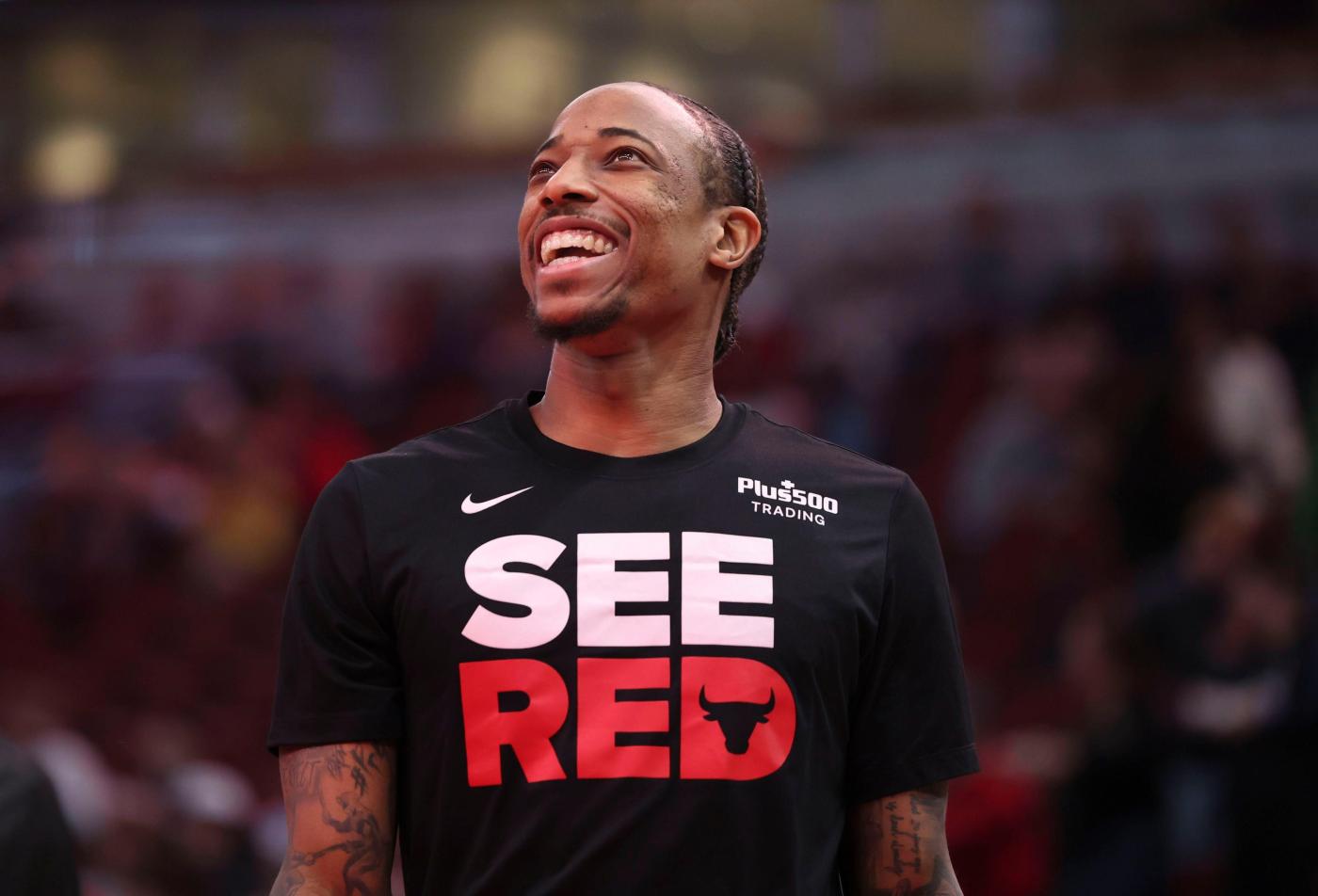
DeMar DeRozan is playing more minutes than any other NBA player his age. How can the Chicago Bull sustain this workload?
DeMar DeRozan isn’t always honest with Chicago Bulls coach Billy Donovan.
Donovan knows it. He values his communication with the veteran star. But in the heat of a game, Donovan knows DeRozan is never going to tell the whole truth if he’s tired.
“That’s just the competitor in me,” DeRozan said. “But at the same time, if there’s something I feel like I can’t do or it would take away from the team, I wouldn’t have a problem saying it. But if I’m out there, I’m out there to give whatever is asked from me, however long they need me out there.”
DeRozan hates to come out of a game. Hates to sit on a sideline even more. If the clock is running, he wants to be on the court. And that’s why he’s played more minutes this season than any player in the NBA besides teammate Coby White.
DeRozan has logged 1,136 this season across 31 games — and he’s doing this at age 34 in his 15th season in the NBA. It’s hard to understand the size of this workload without putting it in perspective.
Only four other players 34 or older have logged more than 900 minutes this season: LeBron James (984.6 minutes, age 38), Brook Lopez (952.6, age 35), Kevin Durant (961.9, age 35) and Stephen Curry (970.4, age 35). And only three other players older than 30 have logged 1,000 or more minutes this season: Nikola Vučević (1,054.1), Tobias Harris (1,022.6) and Damian Lillard (1,019.3).
Despite playing at least 100 minutes more than any player his age, DeRozan said his playing time feels sustainable.
“It feels good, better than expected,” DeRozan said. “I always did a great job taking care of myself physically, even after doing extra stuff, a lot of stuff that a lot of people just don’t know or realize that I do after the games, off days.”
Over the years, DeRozan has built a detailed schedule for his downtime. Massages. Epsom salt baths. Five hour naps. Stretching — a whole lot of stretching.
It might sound relaxing, but recovery is serious work for DeRozan. He keeps an open mind toward recovery and regularly asks the medical staff for suggestions that might help his body absorb the rigor of the season.
“I don’t do nothing else,” DeRozan said. “I don’t hang out. When I go home, I’m home.”
Of course, all the preparation and recovery in the world can’t prevent a player from feeling the fatigue of a nearly 37-minute shift in a live game. So DeRozan has found his tricks for grabbing a few seconds of respite in games.
“Just knowing when a TV timeout is coming, me knowing a foul is gonna happen at some point, me understanding if you need to tie your shoe — it’s a lot of little things that go into it,” he said. “Playing so long, you kind of understand when a stop is gonna come. You take advantage of those moments.”
Donovan knows this can’t last forever. DeRozan hasn’t averaged this many minutes in over a decade. He’s been resilient as ever in Chicago, sitting out only 14 games over the last two seasons despite the team’s COVID outbreak in the 2021-22 season and a leg injury last year.
This playing-time trend is a reflection of DeRozan’s longevity, a tireless dedication to caring for his own health and a fervent desire to remain on the court. But it’s also part of a concerning trend for the Bulls, who continue to over rely on the central trio of DeRozan, Vučević and White — all three of whom are in the top 15 of minutes played in the NBA even after Vučević missed a pair of games with a groin injury.
“I’m concerned about it,” Donovan said. “It’s just kind of the situation we’ve been in. Torrey (Craig)’s been out, Vooch is out, Zach’s out. I’ve played (DeRozan) a lot. I want to be mindful. He has played a lot of minutes and we probably need to look at that.”
()

